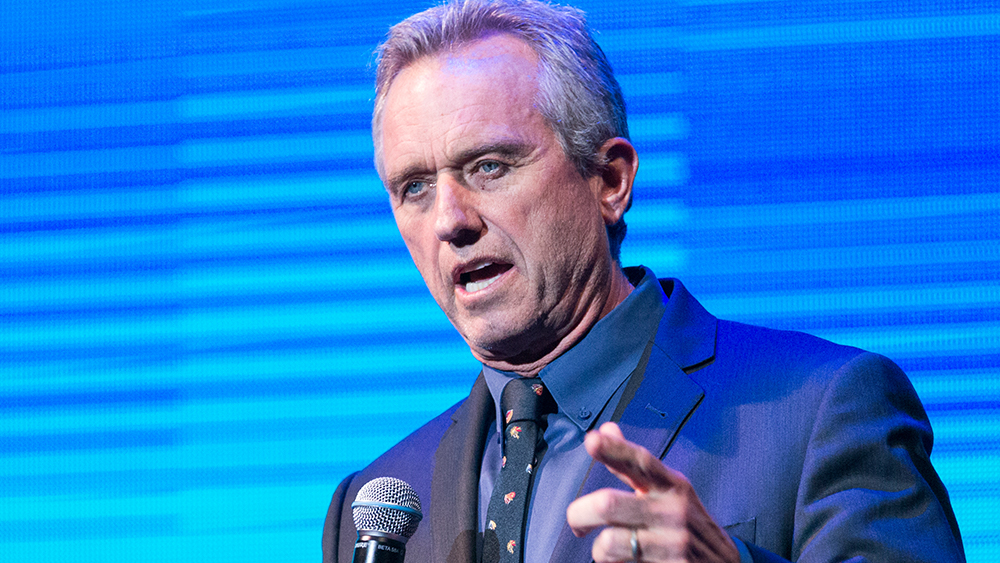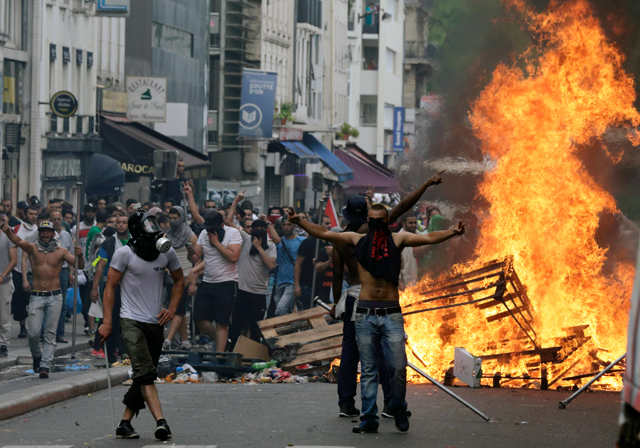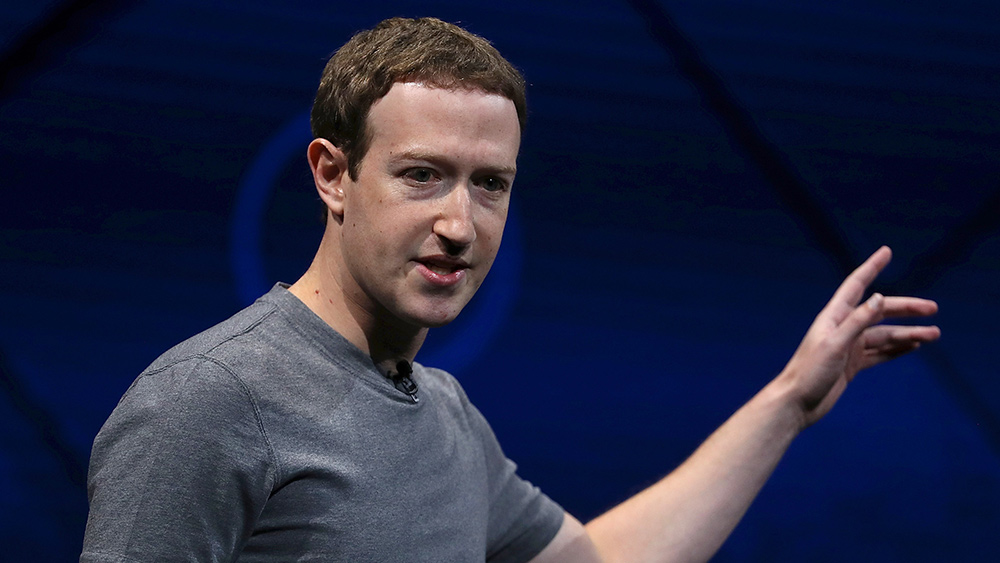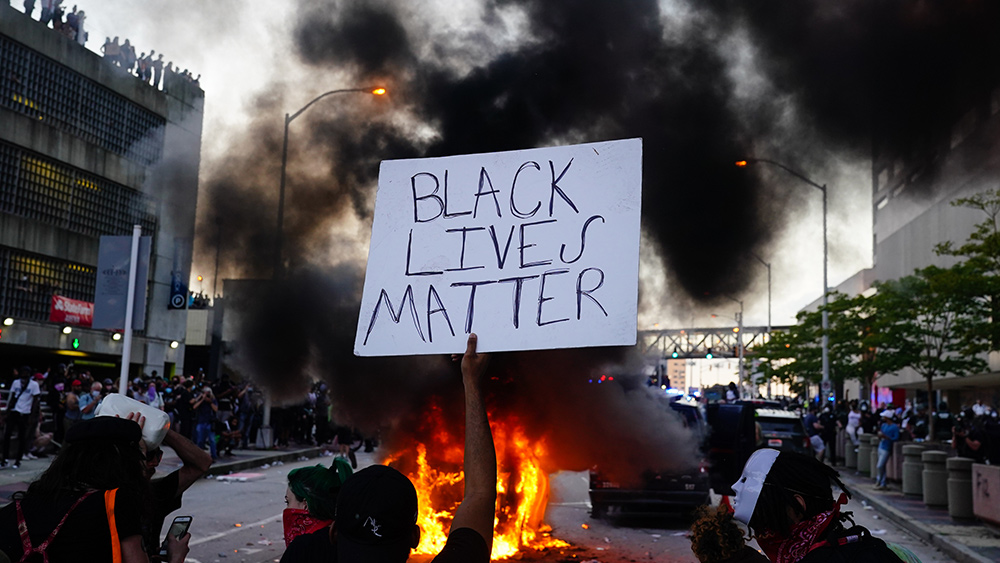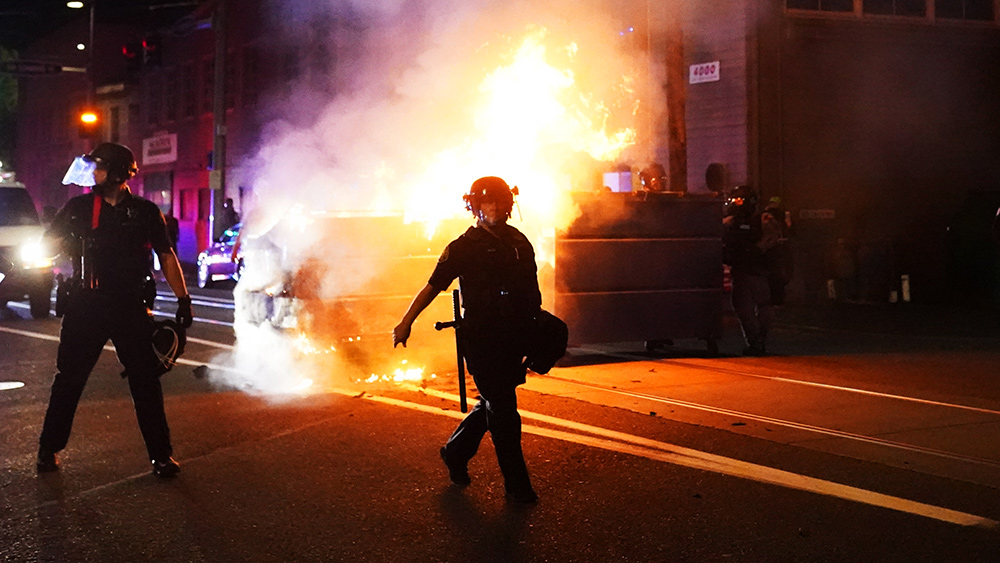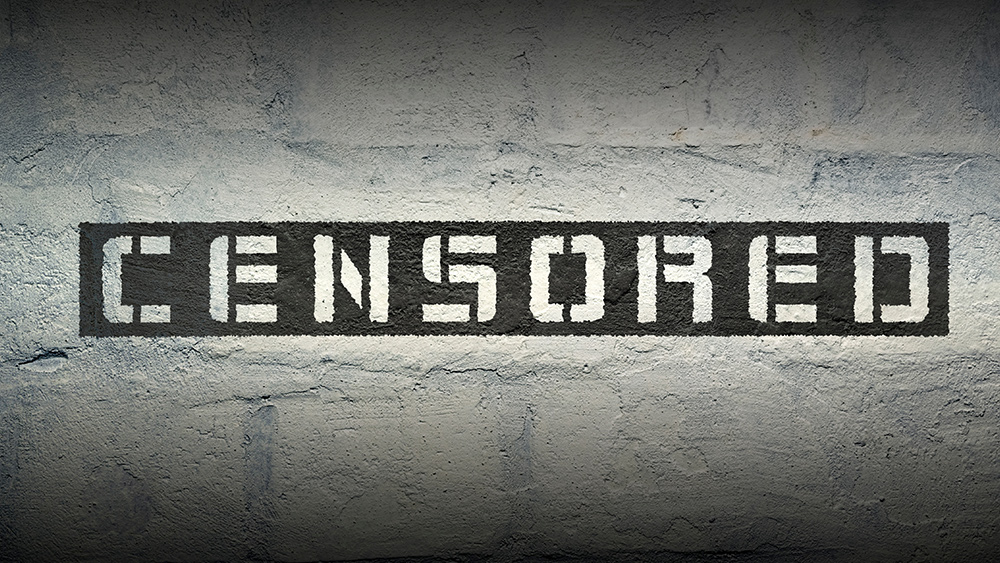Beyond Orwellian: France allows cops to SPY on citizens with their own mobile phones
07/10/2023 / By Belle Carter

Going above and beyond the dystopian social science fiction novel by English writer George Orwell titled “Nineteen Eighty-Four” where Big Brother controls every aspect of people’s lives, French President Emmanuel Macron’s administration has allowed remotely activating snitch phones after the July 5 passage of a provision in the “justice reform bill” at the National Assembly.
The said legislation grants French cops the authority to secretly open a “suspect’s” camera, microphone and global positioning system (GPS) on their mobile phones and other devices like laptops.
Article 3 of the bill indicates the remote triggering of cameras or microphones of the gadgets without the knowledge of the persons concerned would be allowed for different purposes. First, real-time geolocation for certain offenses such as those that are punishable by at least five years in prison. On the other hand, the activation of microphones and cameras to capture sound and images would be reserved for cases of terrorism and delinquency and organized crime.
Justice Minister Eric Dupond-Moretti assured the public that the powers would only be used for “dozens” of cases per year and that this was far from the surveillance state of Orwell’s 1984. Members of parliament also inserted an amendment that only allows “remote spying when justified by the nature and seriousness of the crime” and “for a strictly proportional duration” after a judge has approved the surveillance.
Still, the digital rights group La Quadrature du Net raised serious concerns over infringements of fundamental liberties as the law could violate the “right to security, right to a private life and to private correspondence” and “the right to come and go freely.” This has a potential for abuse, the group pointed out, calling it part of a “slide into heavy-handed security.”
Dissenters also noted that the law does not stipulate what constitutes a serious crime. They fear that Macron’s regime could use this to target environmental activists and others who are not actually grave threats. The organization also pointed out that security policies have a habit of expanding to less severe crimes. “Police would be exploiting security holes instead of telling manufacturers how to patch those holes,” La Quadrature stressed.
Lawmakers also insisted that sensitive professions, such as journalists, judges, lawyers, doctors and MPs would not be legitimate targets, People’s Gazette reported.
French people are suspicious due to the timing of the bill’s passage
Parts of the country face a sea of protests after 17-year-old Nahel Merzouk was shot and killed by a police officer in a Paris suburb. Riots have gotten out of control, spreading with astounding speed and intensity from major cities and suburbs to the countryside, with demonstrators frequently clashing with police. (Related: French police’s fatal shooting of a teenager triggers VIOLENT RIOTS across Paris and beyond.)
The timing of the passing of the bill could not have been worse, experts argue. Currently, the police are having a hard time mitigating the uprising. Could this legislation turn the country into a police state?
Macron argued at the time that the bill was meant to protect police officers from increasingly violent protestors. He expanded police authority via technology, threatening a shutdown of social media platforms, as he claims that protestors are filming, posting and organizing on apps like TikTok, Snapchat and Telegram.
This totalitarian form of governance is not new under Macron’s rule. In 2021, the New York Times reported that the French Parliament passed a bill that broadened the powers of municipal police forces, expanded the police’s ability to use drones to monitor citizens in public and toughened sentences for people found guilty of assaulting officers.
One of the most arduously debated measures criminalized the act of helping identify officers with the intent to harm them.
Gerald Darmanin, the Interior minister who championed the bill, told lawmakers at the time that it would be France’s shame if it failed to prevent people with malicious intent from publicly spreading identifying information or pictures of security forces.
“Police officers and gendarmes are children of the Republic, and they must be protected because they protect us every day,” Darmanin said.
“In the hands of an authoritarian government, such a law would become a dangerous weapon of surveillance and repression of the population,” Cecile Coudriou, the head of Amnesty International France, said in a statement at the time.
Visit Tyranny.news for more news related to tyrannical measures implemented by governments around the world.
Watch the video below where Macron blames parents, video games and the internet as reasons for the violent France riots.
This video is from the Puretrauma357 channel on Brighteon.com.
More related stories:
Top brass military officers give Macron ULTIMATUM to end riots in France.
Sources include:
Submit a correction >>
Tagged Under:
Big Brother, big government, Collapse, computing, conspiracy, cyber war, Dangerous, deception, fascism, France, geolocation, Glitch, GPS, information technology, justice reform bill, Macron, national security, Orwellian, paris, police state, privacy watch, snitch phones, spy gate, surveillance, Tyranny, watched
This article may contain statements that reflect the opinion of the author
RECENT NEWS & ARTICLES
COPYRIGHT © 2017 FASCISM NEWS


